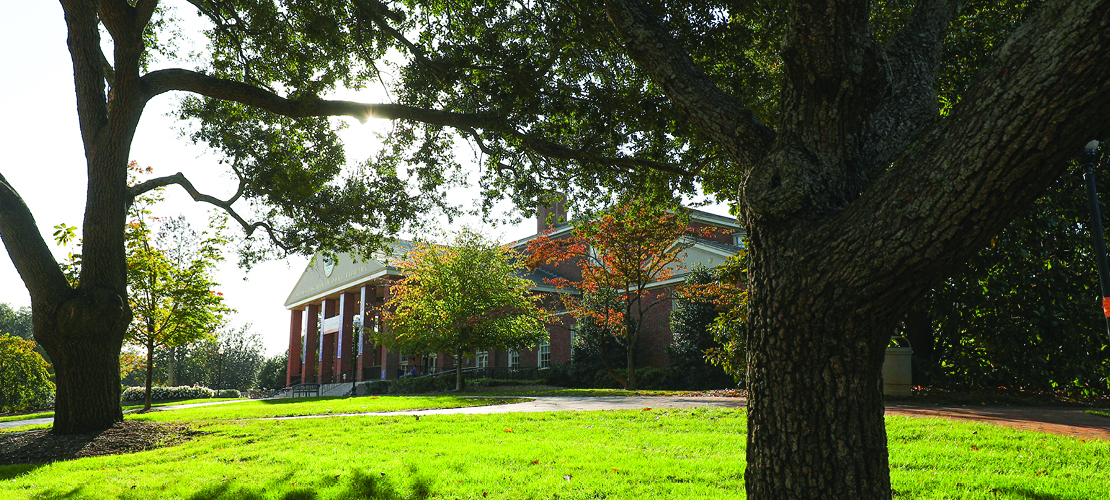Furman Libraries has been documenting life at Furman through its digital archival collections. The Digital Collections Center, in partnership with the Special Collections & Archives, brings together unique digital reproductions and descriptions of over 130,000 records—from ancient and modern artifacts, photographs, music recordings, and oral histories, to manuscripts, diaries, correspondence, yearbooks, newspapers, and ephemera. With representations of historical items dating back to the 16th century, we want to engage in an inquiry process that can help us answer the following questions:
- To what degree are the items we collect, describe, and make accessible to the public as diverse as the communities we serve?
- Where are the gaps in our current archival descriptive and presentation practices, as they relate to diversity, inclusion, equity, and accessibility? What about our strong areas?
- How can we deal with archival silences, especially when we do not have the details we need to correct or enhance our description of under-surface populations?
- How can we remediate instances of potentially harmful content?
- Where in our archival workflows can we bring stakeholders to engage them in our efforts?
When it comes to representing traditionally marginalized communities in our digital archival records, we want to improve our descriptive practices. That’s why we are embarking on a DEI audit of Furman Libraries’ digital collections and finding aids. This assessment will be mutually beneficial to FU students, faculty, and staff, and community members, as it will help us expand inclusive access to digital materials and spark dialogues about what happens as we process and exhibit these materials. Given the current critical archival practices to advance social justice (Punzalan & Caswell, 2015) and the increased level of interest from our community advocates and allies in archives, our project team will consider the following intersectional areas of exploration: Gender and Sexuality, Race and Ethnicity, Class and Social Status, Disabilities, and Religion.
To succeed in this inquiry process, it is crucial to engage in radical collaborations between our project team and stakeholders, comprised of our students, faculty, and staff. Members of this DEI Audit team include Jeff Makala, University Archivist, Director of Special Collections & Archives; Julia Cowart, Special Collections Assistant; Christy Allen, Associate Director for Digital and Resource Management; Kathie Sloan, Digital Projects Specialist; Rick Jones, Digital Collections Center Manager; Scott Salzman, Web Discovery Librarian; Nancy Sloan, Cataloging and Metadata Librarian; Jenny Colvin, Associate Director for Outreach and Access; and Nashieli Marcano, Archivist/Digital Collections Librarian and Project Leader.
Our team will be taking a series of steps that prioritize self-reflection, accountability, and cultural humility , because let’s be frank, we don’t know everything about each other’s cultures, but we are open to learning. As we progress through this open and transparent review, we want to engage our community by providing updates and soliciting feedback. Here are the steps we are taking:
Step 1: Consult the Community and Self-Reflect
Step 2: Study Harmful Content Statements Across Institutions
Step 3: Start Decolonizing4 Archival Descriptions in Metadata
Step 4: Engage Peers and the Community
Step 5: Assess Accessibility of the Content
Step 6: Document the Auditing Process
Step 7: Provide Recommendations
At this stage, we are focusing on the first two steps (italicized above).
These involve acknowledging inherent biases that may impact our everyday work, framing our auditing efforts with user cases and prior literature that foment anti-oppressive practices, and reviewing statements that express our commitment to a continuing process of reflection and improvement.
We’d love to hear from you! Please keep an eye out for our next update when we will give an overview of statements on harmful language and invite you to share your feedback on them. Until then, if you want to get involved, have comments or questions, or if you want to volunteer please fill out the form below.
[1] Cultural humility is the continuous, flexible, and iterative process of self-critique and self-awareness that forces the examination of our own patterns of unintentional and intentional biases and the acceptance that we cannot possibly be adequately knowledgeable about cultures other than our own. (Tai, 2020)



Given the current critical archival practices to effect[affect?]social justice
Hi Steve,
Thank you so much for contributing with your feedback! I was trying to use the word “effect” here as a transitional verb to indicate to cause something to come into being. What if instead, I replace “effect” with “advance”? I could also use “affect” and then further qualify it to express the kind of effect produced (e.g., “affect social justice in a positive way”). I love these types of language questions! I welcome your thoughts.
Thanks again!
-Nashieli